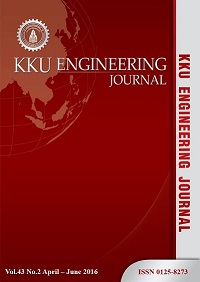A comparison of genetic algorithm and artificial bee colony approaches in solving blocking hybrid flowshop scheduling problems with sequence dependent setup/changeover times
Main Article Content
Abstract
In manufacturing processes where efficiency is crucial to remain competitive, the flowshop is a common configuration in which machines are arranged in series and products are produced individually in stages. In certain production processes, machines are frequently configured in a way that each production stage may contain multiple processing units in parallel or a hybrid configuration. Moreover, along with precedent conditions, sequence dependent setup times may exist. Finally, in the case where there is no buffer, a machine is said to be blocked if the next stage is occupied. In NP-Hard problems, referred to as Blocking Hybrid Flowshop Scheduling Problems with Sequence Dependent Setup/Changeover Times, it is usually not possible to find an exact best solution to satisfy optimization objectives. Thus, it is usually solved by approximate algorithms such as metaheuristics. In this paper, we comparatively investigate the effectiveness of two approaches: a genetic algorithm (GA) and an artificial bee colony (ABC) algorithm. Additionally, we applied an algorithm to improve the GA and ABC algorithms so that they can take advantage of parallel processing resources of modern multiple core processors, while eliminating the need for advance screening of the algorithm optimal parameters. These techniques were applied to solve three problems. In small-sized problems, GA outperformed ABC. For medium-sized problems, the two algorithms appeared to have similar performance. For large-sized problem, ABC performed better than GA because GA is held back by crossover operations. Furthermore, enhancements helped increase the performance of both GA and ABC algorithms.
Article Details
This work is licensed under a Creative Commons Attribution-NonCommercial-NoDerivatives 4.0 International License.



